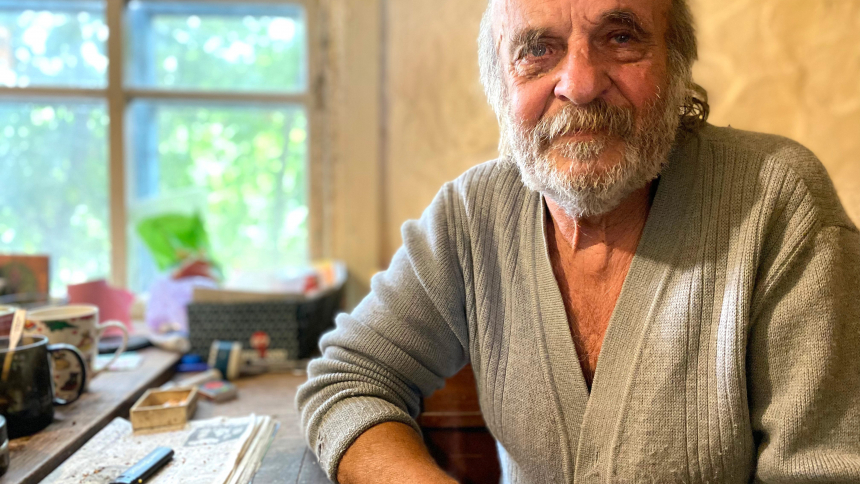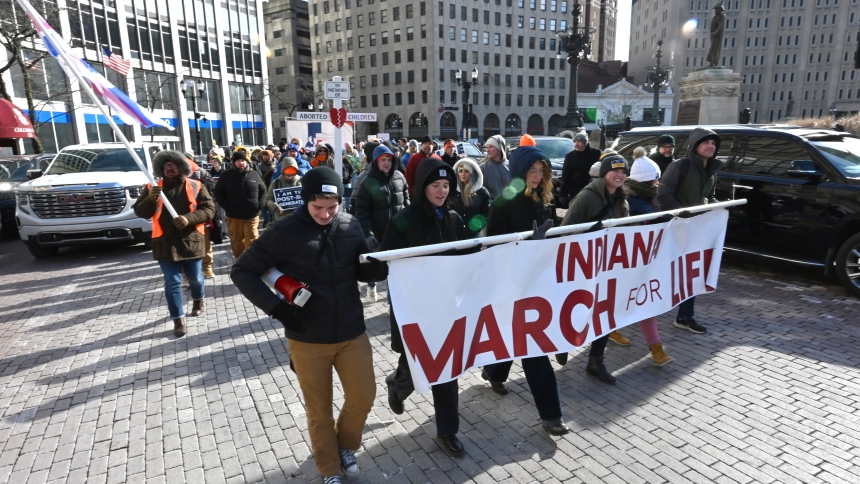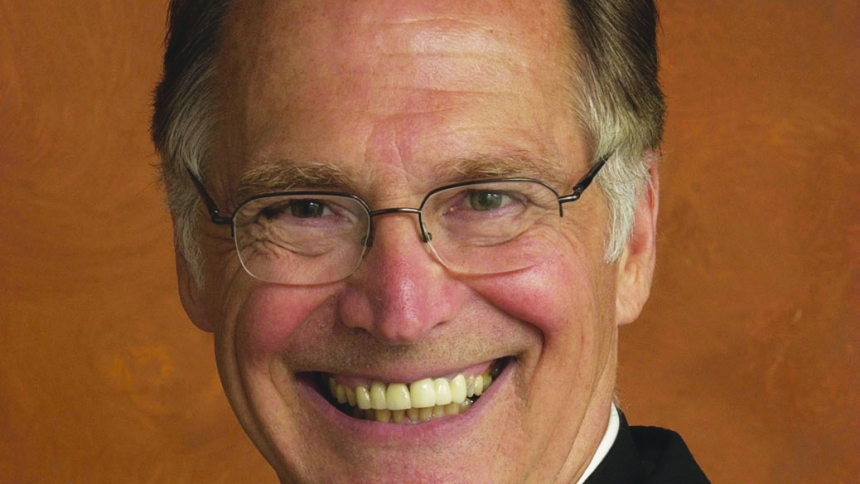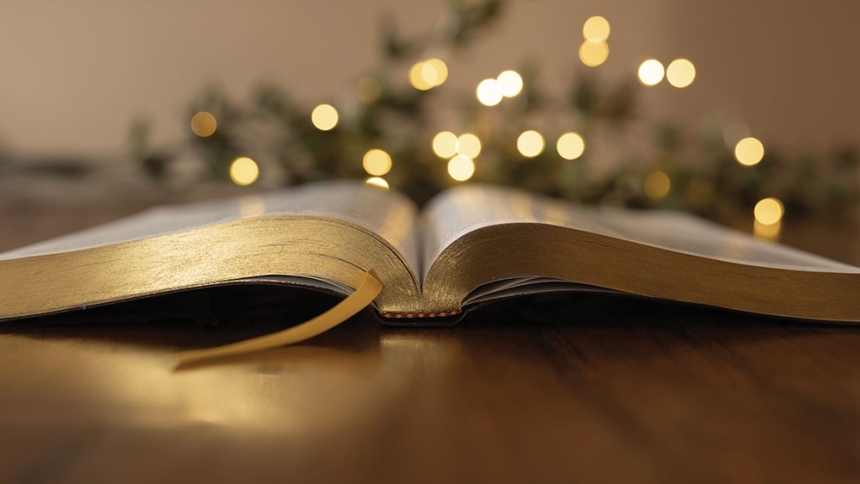
NEAR BORODYANKA, Ukraine (OSV News) - In a Ukrainian village some 50 miles outside Kyiv, a retired music teacher became an unlikely catechist - and lifesaver - as Russian troops brutally attacked several residents.
"We had two icons: the Mother of God and Christ," said Vitya, speaking through an interpreter with OSV News at his home on one of the village's few streets. "Every morning, I asked, 'Save us, Mother of God. Help us; let our guys fight them.'"
Joining Vitya during OSV News' late June interview was his neighbor Vika, who along with her husband, Vitaliy, learned to pray before those icons as they lived in Vitya's basement for two months - hiding from Russian soldiers, one of whom had raped Vika. Out of concern for their safety and those of their families, both Vitya and Vika asked OSV News to withhold their last names and the name of their village.
"The case," as Vika carefully calls it -- she cannot bring herself to use the word "rape" - took place after Russian soldiers entered the village in March 2022, days after Russian President Vladimir Putin launched a full-scale invasion that continued attacks on Ukraine begun in 2014.
The soldier who violated Vika was in his 20s, the same age as her son, she told OSV News. As one of two younger women left in the village, she had tried to remain out of sight, but Russian troops, drinking one evening, searched for and found her at a friend's house. Vika's husband tried to protect her, but she was afraid he would be hurt. She went with the Russian soldiers at gunpoint.
Vika's fears were not unfounded: a second victim from the village saw her husband killed as he tried to defend his wife from being similarly attacked. Such crimes are just a few of the almost 99,000 atrocities that have been documented by Ukraine's government since the start of Russia's full-scale invasion.
Russia's occupation of the little village - a quaint array of cottages surrounded by fences and flowers, with animals sauntering freely - began with just two or three Russian soldiers, said Vitya, who had refused to flee to a nearby settlement with his 20-year-old daughter and her boyfriend.
"I told her, 'I cannot leave. I have two dogs, four cats, chickens,'" Vitya said. "If something happened to the house, I would have nothing."
In the end, some 15 people stayed behind on Vitya's street as Russian troops entered the village and took over homes abandoned by escaping residents.
"I saw three Russian soldiers - one was Russian, the second was Buryat, the third maybe Chechen," he said. "They had machine guns. They were really calm ... one of the women asked, 'Did you come to kill us all?' The Chechen guy said, 'We won't fight civilians.'"
At first, Vitya - who described himself as "an old man" who was "not afraid of anything" - talked to the soldiers, asking from which parts of Russia they had come. He learned that most hailed from Russia's poorer central and eastern regions, whose conscripts have made up the bulk of Russia's forces.
But any initial pleasantries soon turned to orders, said Vitya.
"They came and asked us, 'Fix us something to eat,'" he said. "We were giving them all the produce we had, all the groceries, every day. Understand me: you cannot argue with a person with a machine gun."
One soldier, his vest filled with grenades, banged on the window of one elderly woman's home with a foot-long knife, demanding vodka, said Vitya.
Yet Vitya still tried to "plant a seed in the hearts, in the souls" of the Russian occupiers that their unprovoked war of genocide was wrong, he said.
"They had machine guns, but as a former lecturer and teacher, I wanted to find moments to talk with them," said Vitya. "I asked them, 'I'm an old guy; maybe I don't understand something. Why do you need this war? We do not want to fight.'"
They told him they were against the war, he said - although their disclaimer may have been more strategic than sincere, he admitted.
The soldiers' taunts and ethnic slurs, coupled with their substandard military gear, belied a false bravado, said Vitya.
"One was short, with his machine gun bigger than he was, and he asked me, 'Do you know that (Ukraine President Volodymyr) Zelenskyy has already left for Poland? Who are you fighting?'" Vitya said. "But the soldier was wearing rubber boots, which are really bad shoes (for military use)."
Vitya appealed to basic human bonds, asking if the soldiers had mothers and fathers.
"I want you to come back alive to them," he told the occupiers. "The Ukrainians are not Nazis, they are not fascists; they are good people. So let God protect you, and go back home alive."
Vitya's basement, which Vika was terrified to leave, became a wartime chapel: while hiding there, Vika and Vitaliy were instructed to pray "as my mother taught me," said Vitya.
"We learned 'Otche Nash' (the Our Father)," said Vika. "My husband didn't know how to make the sign of the cross; Vitya was teaching him. I was afraid the soldiers would come here, but nobody came here ... maybe God saved us."
The icons were a constant presence for all three adults, especially when fierce attacks erupted as Ukrainian forces advanced to reclaim the village in April 2022, she said.
As artillery fire sounded, "everything was black, everything was in flames," with "the smell of burned vehicles "filling the village," Vika said. "We would put the icons in a bag and run to the basement."
Vitya, dubbed "the priest" by Vika and Vitaliy for leading them in prayer, said Russian counterfire at times literally drove him to drink.
"One house was shelled by a tank and caught on fire. I was so afraid I poured a huge glass of vodka," he confessed. "And I just drank it until I couldn't taste it."
Still, he persisted in his prayers, reciting them each morning before the icons after coffee and the news broadcast, which concluded with Ukraine's national anthem.
"I always asked, 'Save us, Mother of God, help us,'" said Vitya.
He recalled the day those prayers were answered when the village was liberated in early April 2022. By that point, Vitya and his neighbors had lost electricity; his daughter, whom he had managed to briefly visit amid the chaos, broke the news to him.
"We saw our flag there," he said. "I was looking at our own flag."
Through tears, Vitya asked OSV News to share "the truth about Ukraine."
"We are Ukrainian, we are a working people, a welcoming nation. And we love freedom," he said. "We are grateful to the American people, to their senators and their congress, to President Biden."
"From the Ukrainian people," echoed Vika. "Peremoha."
It means "victory."
Caption: Vitya, a retired music teacher seen in this photo from June 29, 2023, became an unlikely catechist after Russian troops occupied his village near Borodyanka, Ukraine, for several weeks. He sheltered a woman raped by a Russian soldier and taught her and husband prayers; he also tried to "plant a seed" of humanity in the hearts of the Russian soldiers with whom he spoke. (OSV News/Gina Christian)



